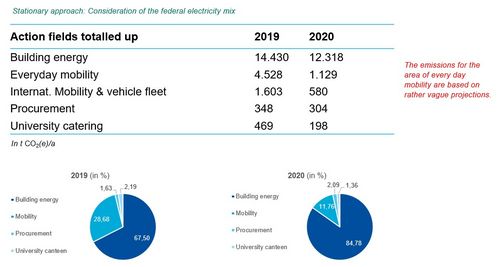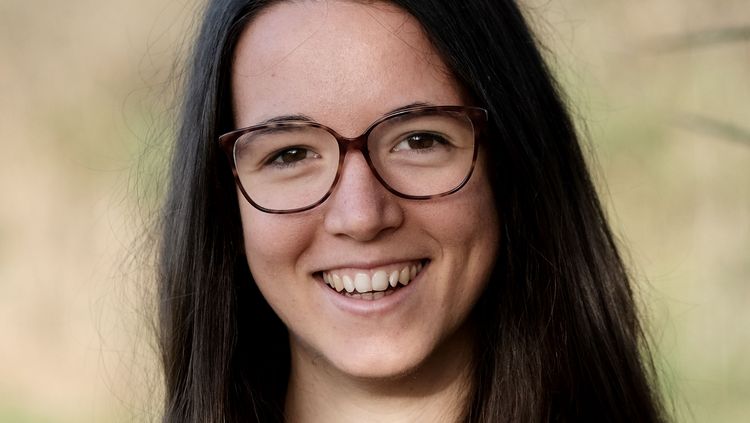Within the scope of a successful online event, the greenhouse gas balance was presented to interested university members and the public. In 2019, the emissions assigned to the university reached a level of 21,378t CO2-equivalents. Due to the pandemic, the emission level decreased in 2020 to 14,528t CO2-equivalents.
The biggest contributor is the area of building and energy, which takes up to 67.5% of the total emissions. This is followed by the field of everyday mobility. Here, the impact of the pandemic is very clear, as the emissions decreased to 1,129 t CO2e because of remote work and online teaching. However, this GHG balance only considers the emissions that are linked to the university’s activities and not to the increased power use and space requirements in the private homes of the university members. A similarly big reduction happened in the area of international mobility.

While the areas of procurement and university catering appear to be relatively impactful on the level of emissions, it is important to note that these fields are still important for the achievement of climate neutrality. Furthermore, the GHG balance only presents the impact of certain activities only in the unit of CO2-equivalents and other sustainability dimensions like compliance with the human rights, use of scarce resources or animal welfare can not be reflected in the numbers.
With this approach, the university followed an unusual wide accounting framework in order to display the university’s carbon footprint in the most detailed way.
The results of the carbon accounting are not only used as an actual state analysis but also flow into the workshops on the different fields of action in June 2022, where concrete measures to reduce the emissions are discussed and worked out.
Interested members of the university are kindly invited to participate in these workshops. More information on the application will be communicated via the usual mailing lists.
https://uol.de/en/ghg-balance https://uol.de/en/climateprotection-and-sustainability/integratedclimateprotectionconcept/stakeholderinvolvement




